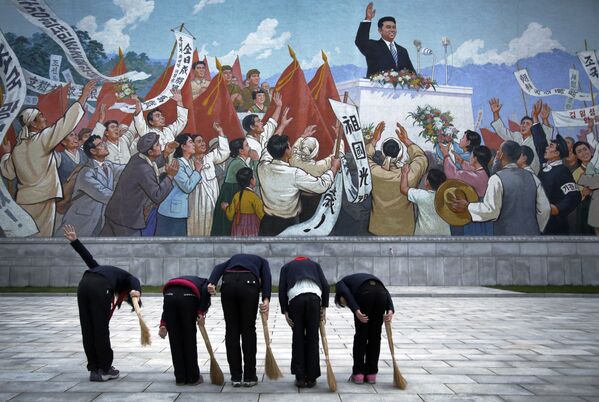newtownrrt.org – North Korea, officially known as the Democratic People’s Republic of Korea (DPRK), is one of the most isolated and secretive countries in the world. Its society is characterized by strict control, limited access to information, and a pervasive atmosphere of surveillance and repression. This article explores the unique and often challenging aspects of life in North Korea, a country that has chosen to close itself off from much of the global community.
Isolation and Control
North Korea’s isolation is not just a matter of geography but also a deliberate policy of the government. The country’s borders are heavily fortified, and the regime has implemented strict measures to prevent unauthorized entry or exit. The government maintains a shoot-on-sight policy for anyone attempting to cross the border illegally, which has deterred many from attempting to flee the country.
The regime also controls all forms of communication and media. Access to the internet is strictly limited, and the few North Koreans who have access are monitored closely. Similarly, all television and radio broadcasts are state-controlled, ensuring that the population receives only the information that the government deems appropriate.
Daily Life and Repression
Despite the isolation, North Koreans lead their daily lives under the constant watch of the government. The regime uses a system of surveillance and informants to monitor the population, ensuring that any dissent or unauthorized activities are quickly detected and punished. The government also enforces a strict ideology, promoting loyalty to the Kim dynasty and the state.
The economic situation in North Korea is dire, with the government prioritizing military spending over the welfare of its citizens. This has led to widespread food shortages and malnutrition, exacerbated by natural disasters and the Covid-19 pandemic, which further isolated the country.
Human Rights and the Future
The human rights situation in North Korea is among the worst in the world. The government routinely uses torture, forced labor, and public executions to maintain control. The regime also operates a network of political prison camps where dissidents and their families are sent to face harsh conditions.
The international community has expressed concern over these practices, but North Korea has shown little willingness to change its policies. The country remains one of the most isolated nations, with limited diplomatic relations and a continued focus on self-reliance and military strength.
Conclusion
Life in North Korea is marked by isolation, repression, and a lack of freedom. The government’s control over every aspect of society, from communication to economic activities, ensures that the population remains largely unaware of the outside world and unable to challenge the status quo. As the country continues to isolate itself, the challenges faced by its citizens are likely to persist, leaving the future of human rights and freedom in North Korea uncertain.
